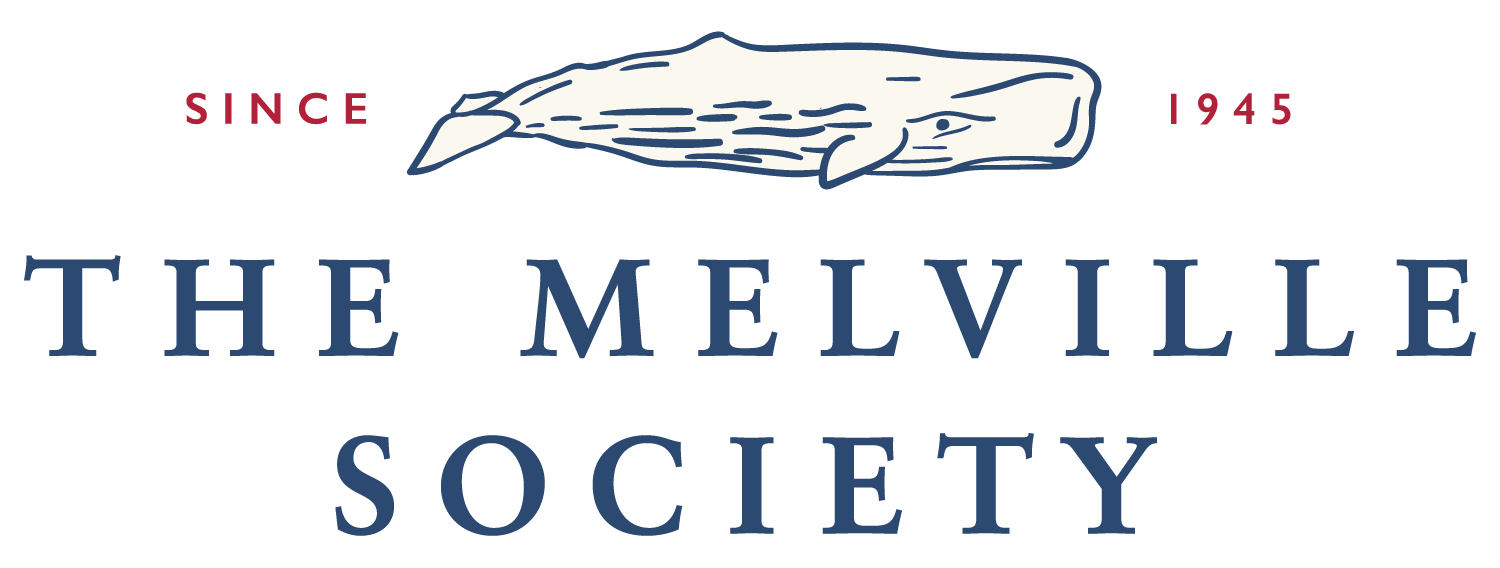Call For Papers: Melville Society Panels at MLA 2024
The Melville Society is sponsoring two panels, plus one panel co-organized with the Conrad Society, at the 2024 Modern Language Association Convention, to be held in Philadelphia, PA, January 4-7, 2024.
Submission guidelines, including deadlines, for each panel’s call are below:
Melville and Human Ecology
From New York to Nukuheva, from London to the Levant, Melville had a wider experience than most of his contemporaries of observing human societies in varied environments. Recent years have seen a surge of scholarly interest in Melville’s ecological thinking via historicist, ecocritical, new materialist, and related approaches. Amplifying this wave of interest, the panel aims to present work on Melville's understanding of human cultures as ecological phenomena, as embedded in / threaded through "nature." While work on any Melville text is welcome, the panel particularly encourages work on texts that are not often included in environmental-humanities conversations such as White-Jacket, “Bartleby,” “Benito Cereno,” or The Confidence-Man.
200-word abstract and short c.v. to Timothy Sweet tsweet@wvu.edu by March 6.
Medical Melville
Melville’s characters experience a range of conditions—from deafness to dyspepsia. How does the author stage the drama of treatment? What kind of doctoring does Melville advocate? Biographical approaches welcome.
200-word abstracts and CVs to Ralph Savarese (savarese@grinnell.edu) by March 11th.
A 2008 article in The Journal of Medical Biography refers to “the many ailments of Herman Melville.” It reviews claims of bipolar disorder, alcoholism and post-traumatic stress disorder. Noting Melville’s “recurrent attacks of eye pain, photophobia and disabling low back pain,” it focuses on the author’s “abnormally rigid posture” and literally shrinking stature: by the age of 37, Melville had lost, it reports, nearly 1 ½ inches in height. This medical biographer’s diagnosis? Ankylosing spondylitis, an inflammatory, autoimmune arthritic disorder that causes the bones in the spine to fuse.
Whatever his own medical problems, Herman Melville was keenly interested in the ailments of the body and the way that people tried to alleviate them. Think of Bartleby eating ginger to calm his Wall Street stomach (Savarese) or of Ishmael setting out to sea to tame his melancholy (Ryan). Encountering Elijah, Ishmael notices that the man who tries to warn him about Ahab has a gravely injured arm and small-pox on his face. The man claims that Ahab will get better when his own arm does, which is to say never. Pip, readers now agree, suffers from post-traumatic stress disorder. He finds a kind of treatment in the radically transgressive, though temporary, kindness of Ahab. Doctoring takes many shapes and doesn’t always come with a license.
After hearing a strange ticking sound, the narrator of “The Apple-Tree Table” tells us that he “made vigorous use of the flesh-brush, and bathed [his] head with New England rum, a specific once recommended to me as good for buzzing in the ear.” The Confidence Man is chock-full of characters who need help and those who would too eagerly offer it: the Mute, Black Guinea, the Shrunken Old Miser, the Sick Man, the Herb Doctor, the Dusk Giant. The steamship Fidele is a veritable hospital of doubt. Or think of Billy Budd, whose final ejaculation on the gallows—“God Bless Captain Vere”--is uttered without “vocal impediment.” Readers unfamiliar with stuttering and the strategies for managing anxiety when speaking publicly might be tempted to trust the semantic content of that statement. In fact, as a kind of automatic speech, it’s designed to get the stutterer through a difficult moment. It has little to no meaning other than the hope of fluency.
I’m looking for papers that engage with questions of health and well-being in Melville’s work. I’m especially interested in approaches to illness and disability that move beyond simple, ableist dichotomies. How is the human body-mind a site of social contestation? How is the question of health always larger than the medicines and treatment regiments thrown at it? How does Melville, who’s credited with one of the earliest representations of phantom limb syndrome, anticipate contemporary understandings of the human organism?
Melville, Conrad, and Life
Organized with the Conrad Society
Both Melville and Conrad appeal to the concept of life allied with their artistic activities. Moby Dick is pervaded by appeals to the appeal to life, as in the description of a whale skeleton become a chapel: "Life folded Death; Death trellised Life; the grim god wived with youthful Life, and begat him curly-headed glories." Conrad, too describes the action of art in fruitful tension with the kinetics of life, as when in his 1897 preface, he connects art with seizing a fragment "from the remorseless rush of time, a passing phase of life." But how exactly do these writers understand and see their relation to "life" -- vegetative, human, physical, spiritual, ethical? This panel invites papers that consider metaphysical, aesthetic, ethical, linguistic, biological, or cultural approaches to the concept of life, including its potential tragi-comic polarities, in Melville and/or Conrad. How do these authors use the concept to challenge ethical or cultural assumptions, or to innovate and animate their own art?
Send 250 word proposals to Mark Deggan <mark_deggan@sfu.ca> & Meredith Farmer <farmerma@wfu.edu> by March 15, 2023.
For more details on the 2024 Modern Language Association Convention, see https://www.mla.org/Convention/MLA-2024
